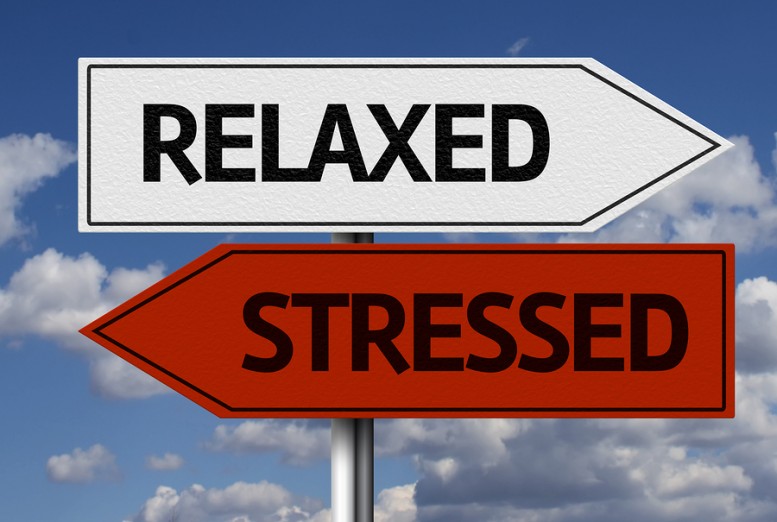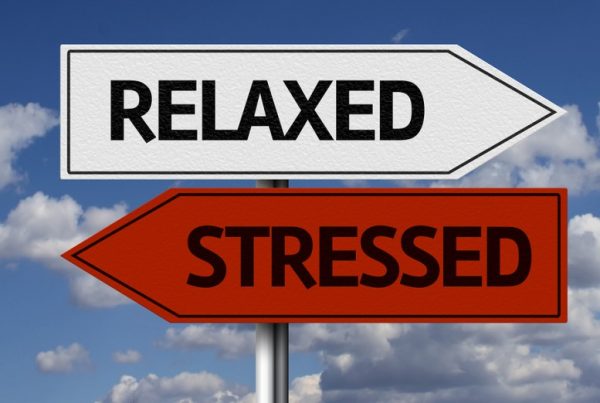It is believed that work is synonymous with stress and it is a common and widely held notion that stress is caused by work. However, this is not true of all cases. Stress can be caused by a number of reasons, which may not be related to work.
Stress is a state of mental or emotional strain resulting from difficult or challenging circumstances. Stress can happen when we go through situations that rob us of our energy whether physical or emotional. Stress does not always have to be related to work, but it is always related to health. Stress can tip the dynamic balance of a normal life. We all have certain issues bothering the mind but we keep the balance by regulating how much each issue affects our overall health. However, some people find it hard to strike a balance between life issues and this invariably results in stress.
Health has been defined as a person’s mental or physical condition. Health is subdivided into about three major aspects: mental health, physical health and social health. It is most likely that if one aspect of health is affected by stress, then other aspects too can be affected. Health, as we all know, can be affected by many things. Stress, in particular, has a specific way through which it affects general health. It is safe to say that health is not only affected by the stress of work alone. Stress can target any of the three major aspects of health. Taking it one after the other, we explore the different ways by which stress gradually creeps up on our health.
Stress in Physical Health
This is the most noticeable aspect through which stress affects health. Most times, in physical stress one or more parts of the body are affected. We can see this affected body parts such as the face, hand, leg or others. When stress affects the physical health it can be easily noticed and treated. This can probably be noted as the most manageable form of stress because it is easily noticeable and treatable. Scenarios in which stress can be seen affecting the physical health could be:
- Accidents
- Depression
- Health problems etc
Stress in Mental Health
When stress affects the mental health, it can prove very dangerous to cope with and manage because the mental health regulates how one reacts to stimuli. A prime example is the case of a child and an adult both going through pain. It can be observed that the adult does not necessarily cry and shout during physical pain whereas the child is most often heard screaming. Although this can be subject to the type of pain each of them is going through. In essence, stress should not be allowed to eat deep into mental health as this can easily cause other problems such as lunacy, acute irritability, mental retardation and others. Scenarios in which stress can be seen affecting mental health could be:
- Death of a loved one
- Loss of source of income
- Betrayal etc
Stress in Social Health
A lot of people do not believe that stress can affect the social life of an individual. This can happen when being under pressure affects the way an individual responds to people and his environment. A case whereby a normal person suddenly or gradually recoils into a shell and stops relating with others can be traced to stress. When a regular party-goer becomes someone who cannot step out of the house anymore, this can be a result of stress affecting social health. Scenarios where this can happen include:
- Blackmail
- Excessive apprehension or fear
- Receiving of threats etc
With all these aspects of health connected to our overall well-being, how do we strike a balance between perfect health, work and stress? Doing this is not an impossible task, however, it requires focus and understanding of the fact that we all possess one single life and it is our responsibility to preserve it for as long as possible. These tips will help you to maintain good health in the midst of all the drama of work and stress.
- Make a list: If everyone learnt this simple trick, the world would perhaps be free of misplaced priorities, incomplete work, inefficiency and lots more. The idea behind this is to write every single thing down. At the top of the list should be the most important work to carry out. A Chinese adage says ‘the things I hear I forget, the things I see I never forget’. Once a list is compiled to remind you of all the relevant things to do, the work becomes less bulky and confusing. This method is commonly used by top chefs and cooks where they write down every ingredient and step required to cook a meal. If cooks and chefs can stick to this simple method, you can also try it.
- Have a schedule: If you have ever visited the offices or homes of rich and successful people, you will realize that these set of individuals use a schedule for every work. Having a schedule means having a specific time set aside for each activity or program. This way, one can decide what time to carry out what work. Create and strictly follow a schedule and you will notice that twenty-four hours of a day is more than enough to complete any work if managed properly.
- Do not worry about things no one can change: This is a major point that every person is trying to deal with. Plastic surgeons make millions of dollars off people who will not accept this single fact. There will always be issues where nothing can be done. Accepting this will go a long way in ensuring a balanced health and eliminating stress. A child that throws away the knife after it has already cut him does not undo the harm that the knife had caused. We all know crying over spilt milk will not bring the milk back.
- Work hard but not too hard: We all know our limits, we all know when the nerves and cells in our body ask us to stop working. Most times, not listening to these signs and signals is what leads to stress. Although in this time and age, it is necessary to work hard in order to survive, it should not be to the detriment of our own health. Hard work should be done when the body is in optimal condition and the energy level is still high.
- Know when it is time to switch off the light: By switching off the light, we do not just mean the office or bedroom light, it includes all the torches, bedside lanterns and lamps, phones and other gadgets that rob us of precious sleep. A study showed that an average adult needs up to four or five hours of sleep to perform optimally. Taking this into consideration, we can safely conclude that enough sleep reduces stress because getting the right amount of ‘shut eye’ goes a long way in maintaining good health and work.
- Worry less and drink lots of water: Worrying is a thing that comes naturally to most people as the human mind can be quite difficult to control. It keeps wandering from one place to the other. Imaginations and inspiration are positive and can prove useful in certain circumstances but before these begin to have an adverse effect on the health, one must worry less and control the mind. Water, they say is the source of life as its usefulness and advantages cannot be overemphasized. Drinking water serves as an effective barrier against certain diseases and illnesses, stress inclusive.
In conclusion, although we try to keep our health in optimum condition, it is not always possible to be healthy throughout an entire lifetime. Certain times will come when we just have to seek medical or psychological help. The most important thing is never to give up or give in to stress as much as possible.


